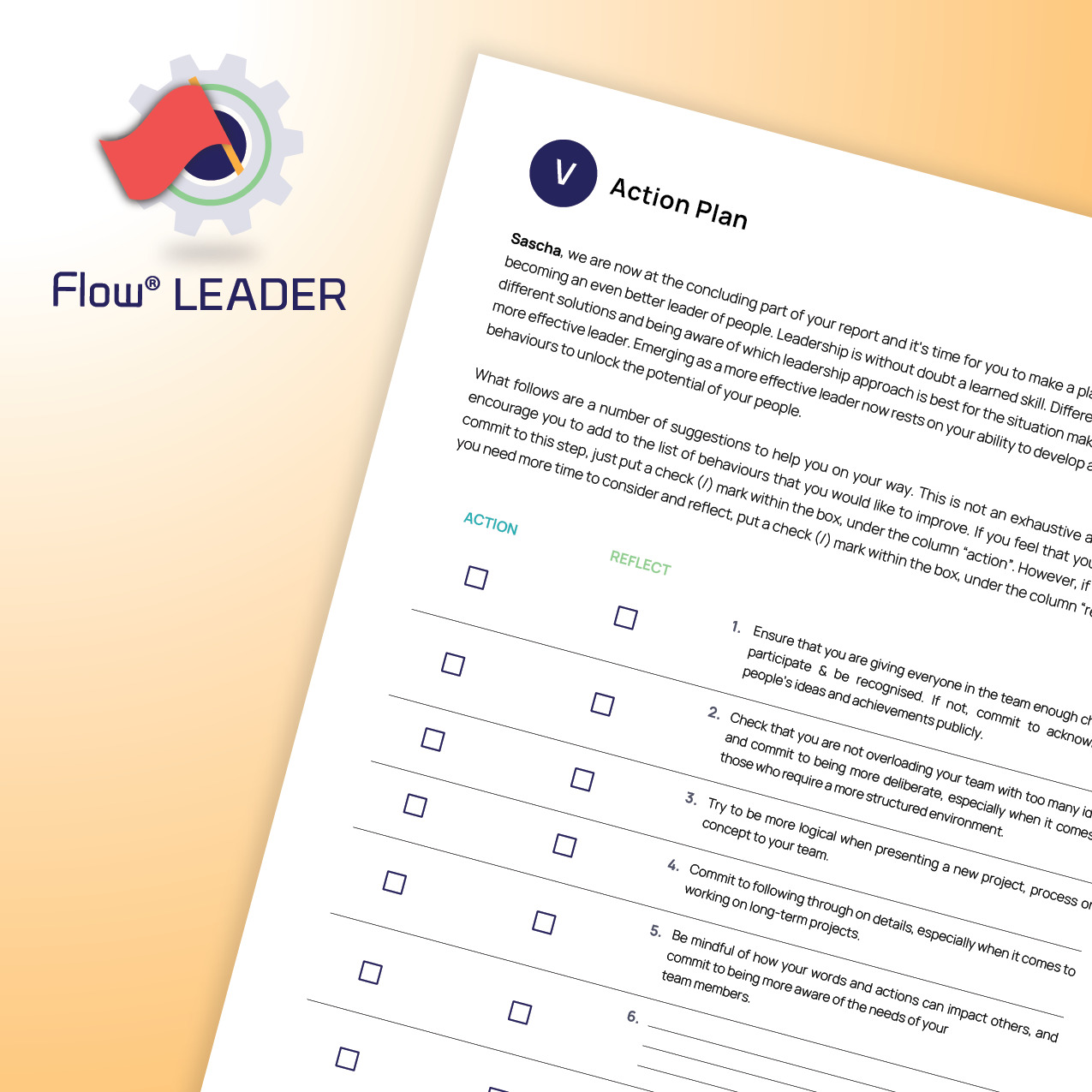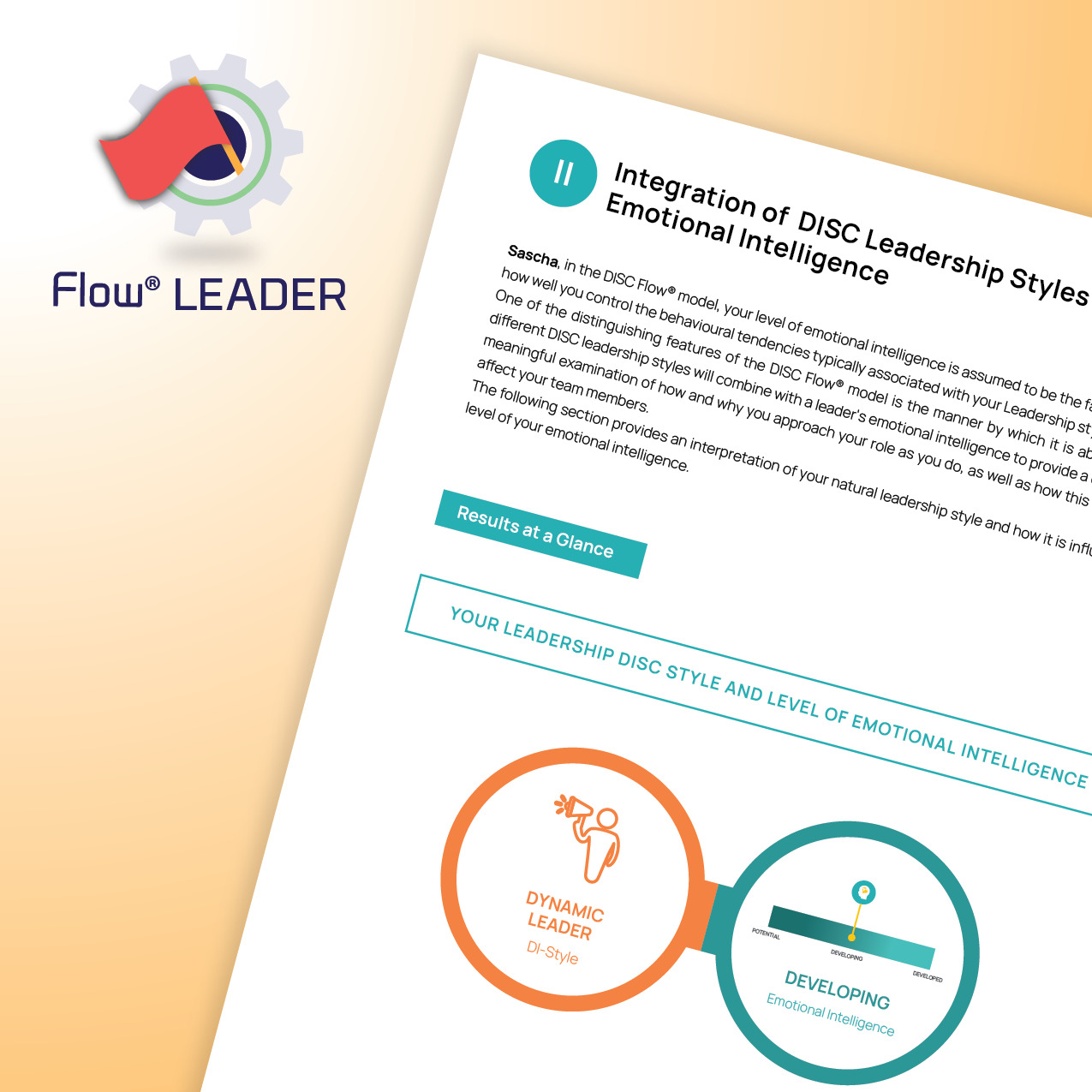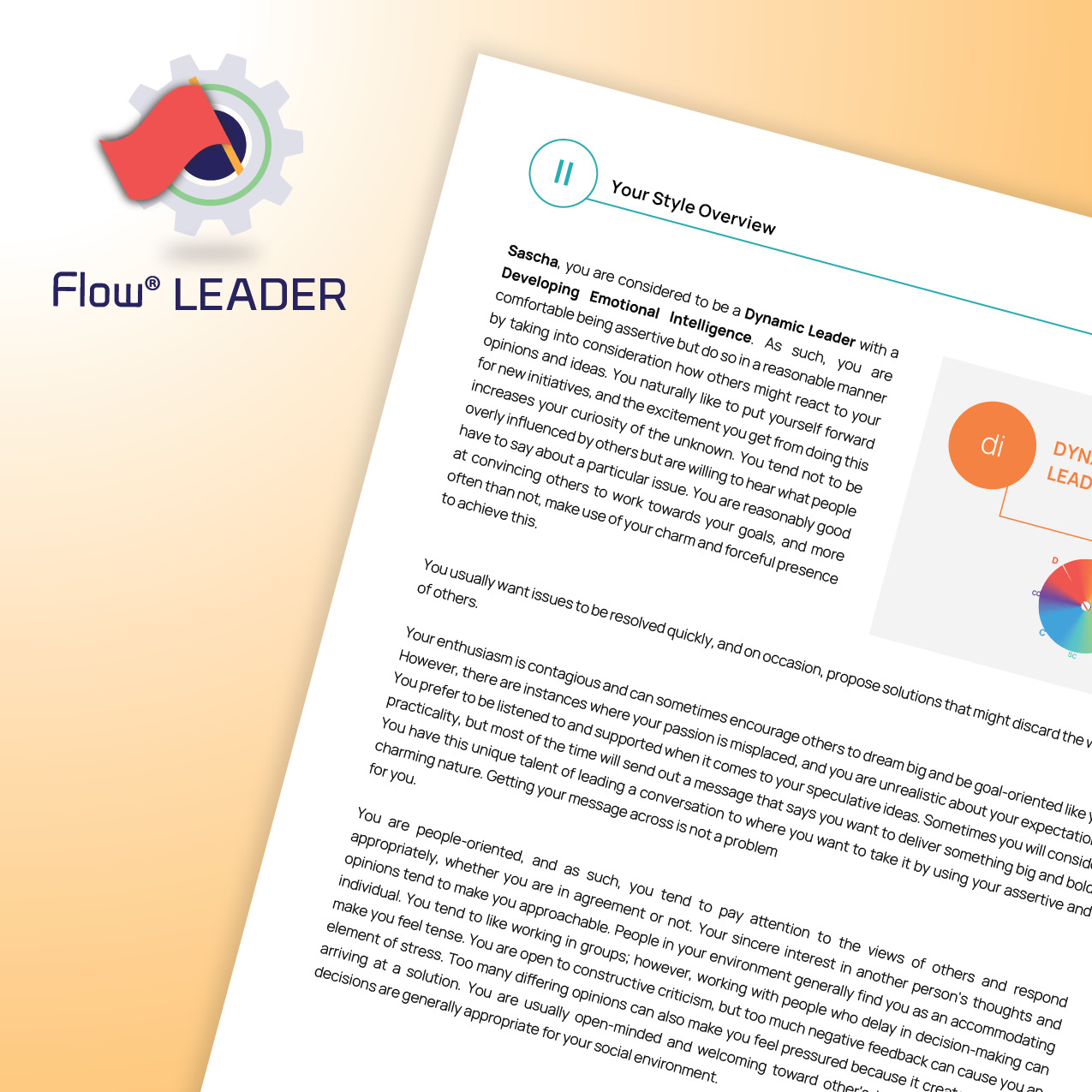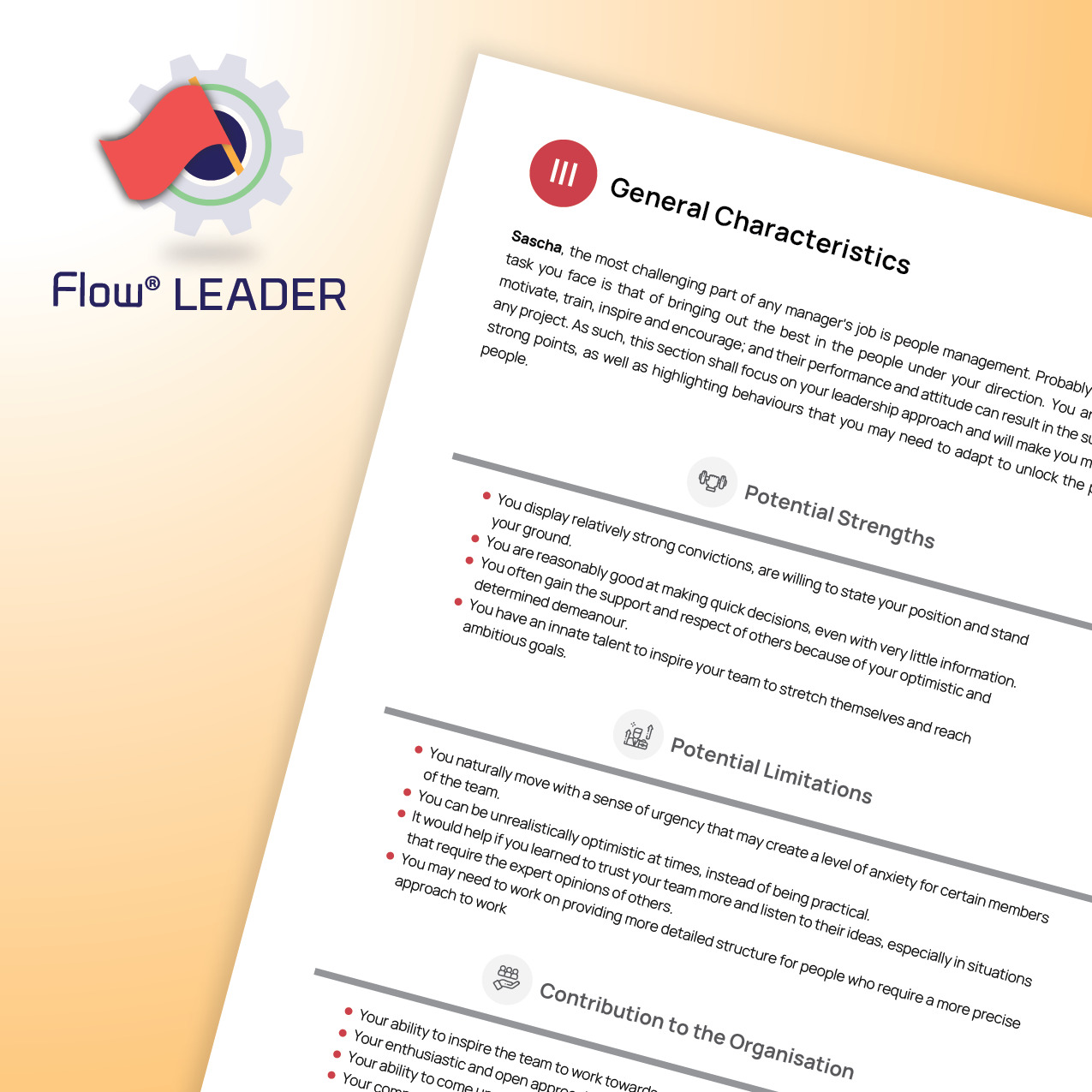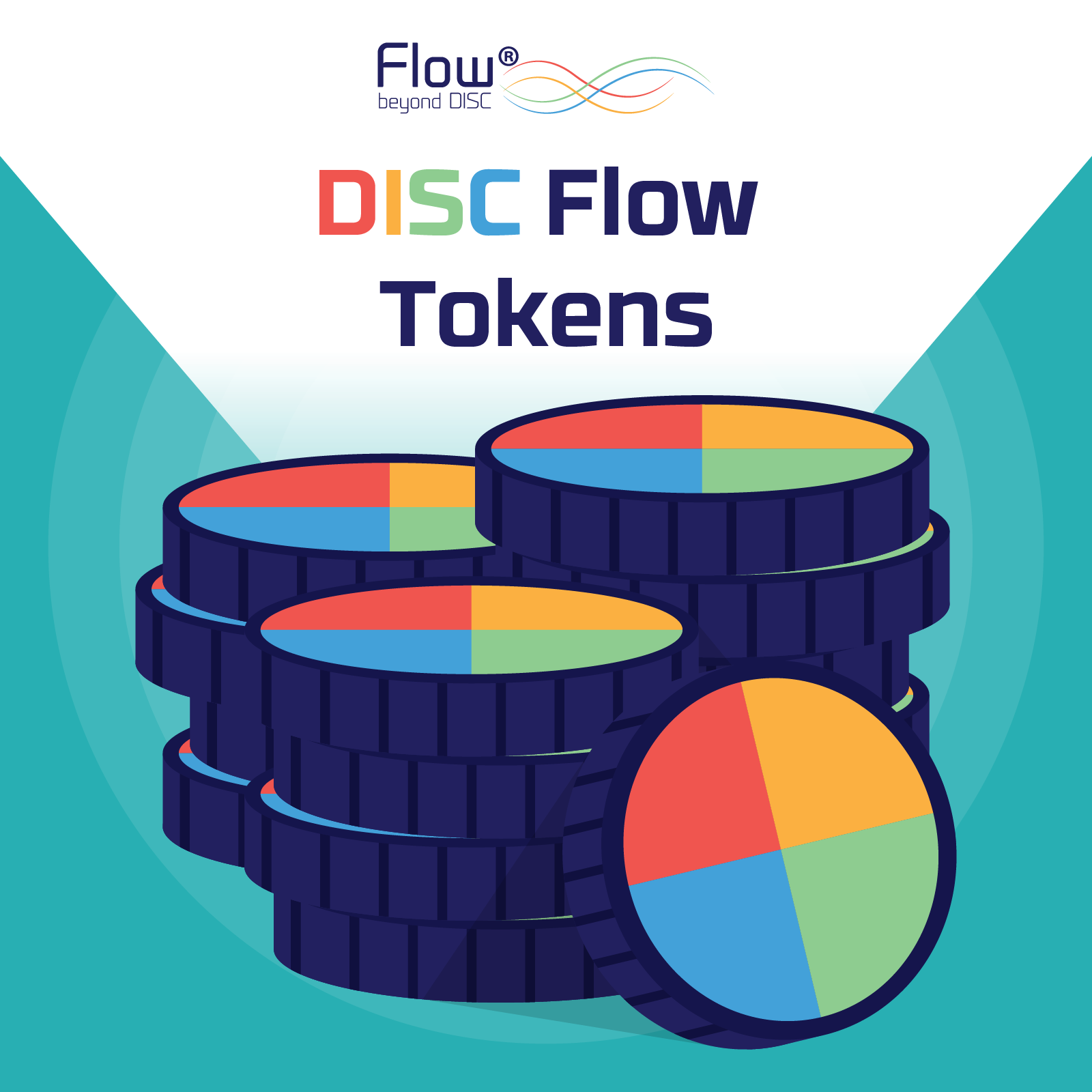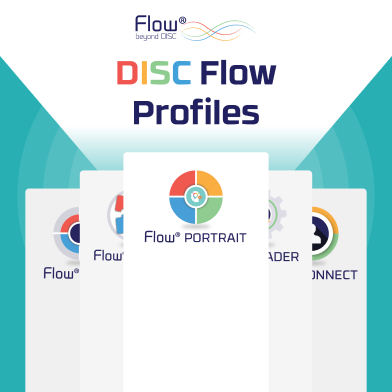Discflow®
LEADER Report
Discflow® Leader is a highly accurate report that identifies a leader’s preferred behavioural style and communication preferences. The report focuses on your leadership approach and will make you more aware of your strong points, as well as highlighting behaviours that you may need to introduce or adapt to unlock the potential of your people.
Empower the people who follow you and unleash their potential.
Leadership Approach
The Personality Types Explained
The DISC assessment identifies four key personality types: Dominance, Influence, Steadiness, and Compliance.
DOMINANCE
Direct, assertive, and results-driven, D style individuals are good at making swift decisions. Dominance personality types tend to be very competitive and independent, making them effective workers.
The Dominance leadership style is often authoritative and effective, making a lot of decisions and confidently moving the team forward. However, their abruptness and lack of tolerance for other people’s feelings or ideas might make them an autocratic leader in the workplace.
Because Dominance individuals may tend towards an autocratic leadership style, they need to work on being patient and communicating better with team members. They may need to practice taking advice and cooperating with others to be a less autocratic leader.
INFLUENCE
Enthusiastic, friendly, and energetic, Influence personality types are at their best when working with other people. They are often charismatic and trusting, using their people-oriented personality style to build strong working relationships.
The I type leadership style is open and enthusiastic. These individuals are able to motivate others and think positively about tasks, which are valuable traits in a leadership setting. They keep the energy levels high and are very conscious of their team members’ feelings, working hard to create a happy and cohesive team.
However, their leadership limitations include a lack of attention to detail and lower levels of organisation. Because they care about their relationships with other people and wish to be accepted, they might avoid uncomfortable situations and conversations which are essential in leadership. I types might need to work hard to be more engaged in the team’s day-to-day organisation.
STEADINESS
With good listening skills and an even temper, people with Steadiness personalities shine in a calm and predictable work environment. They are easy-going and sometimes reserved, preferring to work with people they already know. Their strengths include being trustworthy and stable, and they are known for being patient and loyal in a team setting.
In positions of leadership, people with Steadiness personality types may be democratic leaders because they listen to their team members and take their opinions on board. However, they tend to take decision making processes slowly because they are not natural risk-takers.
People with the Steadiness DISC style also struggle with handling conflict or setting goals, and might be very sensitive to criticism. Less flexible than other personality profiles, they may be resistant to change within an organisation or team, which can stifle innovation.
COMPLIANCE
Organised, meticulous, and sometimes perfectionistic, the Compliance behaviour style is typical among people who thrive in intellectually stimulating task-oriented work. Good at collecting information, C style types often work well independently. They can be creative and analytical with a great attention to detail.
In leadership, Compliance types set a good example for their team with their meticulous and detailed approach. They encourage the team to strive for perfection. However, people with the C DISC profile also might frustrate employees with their high standards, causing tension.
Decision-making is often a limitation of these individuals who are cautious and like to collect a lot of data, sometimes delaying the decision-making process. Moreover, C behavioural types may need to work on building bonds with their team and let go of tendencies of micromanagement.
Start using DISC Flow® Today
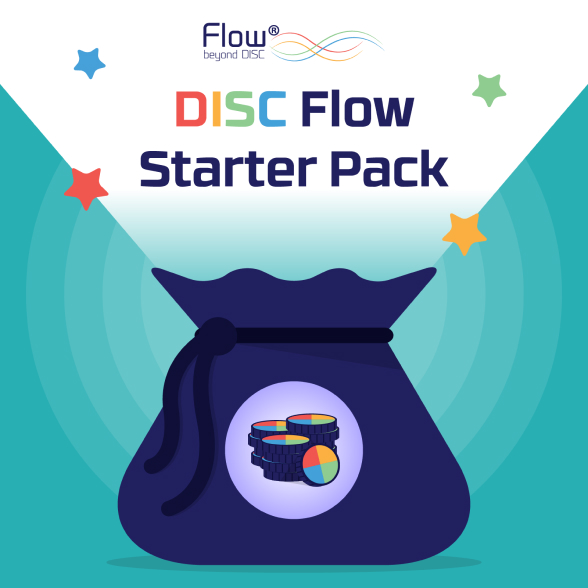
Ready to unlock the power of your people? DISC Flow® can help transform your workplace. If you’re looking to purchase more than 10 profile reports, take a look at our discounted Starter Pack for your organisation! Or, for any ongoing requirements, please contact us so we can advise you on the best solution. DISC Flow® is dedicated to helping organisations solve their people problems!

